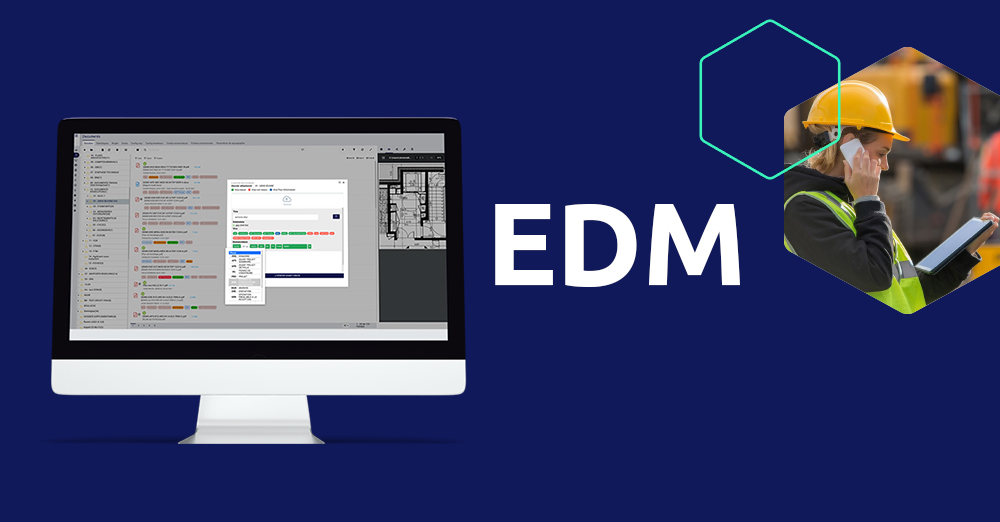Published on
EDM is much more than just a drive!

At a time when email services the likes of Google and Microsoft are all offering free online storage spaces that could oust EDM, this is still a mainstay for managing construction projects. Consideration of business requirements, interoperability – in this article, we share what our clients appreciate the most about this well-established Kairnial module.
EDM, which stands for Electronic Document Management, is a software system for storing and sharing digitised paper documents. A company adopts such a system when it wants to host and collaborate on documents. So far, this definition does not sound all that different from a drive. Because anyone can digitise documents, host them in a storage space then authorise access to participants. An architect, for example, can store PDF plans on a drive and grant access to the main contractor who can then download these plans at their end whenever necessary.
Utilising project information
In practice, this is where the first advantage of an EDM module like Kairnial’s becomes apparent. The project management team, when storing their plans, will be able to create a classification previously defined by the conventions or general and specific administrative clauses (CCAG/CCAP). Once the plans have been centralised in the EDM module, they can be viewed and annotated directly in the Kairnial platform. In other words, all of the participants – depending on their previously configured access rights – can, whether in the office or on-site, open a plan and locate an observation and a form directly on it.
-MOBILE%20(FR)%20smartphone-3.png?width=709&name=PRODUCTS-OBS%20(2)-MOBILE%20(FR)%20smartphone-3.png)
Easy access to information
Another advantage to organising the storage of documents in an EDM system is that either a tree structure or metadata-based organisation can be applied. Users can thus define the rules and processes for approving documents contained in the EDM system or add documents by giving them a codified name. The difference between the two methods lies above all in the entry point into the EDM system. Kairnial has decided to offer both methods to its users by enabling them not only to add documents to their tree structure but also to search for their documents using metadata.
.jpg?width=700&name=HOMEPAGE-DOCUMENTS-DESKTOP%20(FR).jpg)
Enhanced, more secure collaboration
Once documents have been added to the Kairnial EDM module, users must be able to digitise collaborative work processes. For instance, the main contractor may produce performance plans and need to have these approved by the project management team. Since the EDM tool has been designed to serve as an aid for the construction trades, it has been possible to carry out this signing-off stage directly in the platform from the outset. The project management team is thus notified of the addition of documents and, once these have been approved, the main contractor knows that it can work with these plans with complete peace of mind. This saves valuable time as it is no longer necessary to email back and forth or make several phone calls to complete this mandatory stage in construction projects. Thanks to in-app stats, the teams can all review the project and track the status of documents, whether approved or awaiting approval, thereby gaining a clear picture of how the project is progressing overall.
Unlike a conventional storage space, the Kairnial EDM module paves the way to real-time synchronisation between all of the construction or operational professionals working on an asset. It sets the stage not only for centralising information but also for working directly and securely on the documents associated with the construction project. The EDM module thus becomes a collaborative tool and, ultimately, a decision support tool.
So stop asking yourself “are you going to digitise the management of your projects” and start asking “when are you going to drive digitisation in your projects by connecting all the stakeholders to your Kairnial platform?”

-DESKTOP%20(FR)-1.jpg?width=850&name=PRODUCTS-DOCUMENTS%20(3)-DESKTOP%20(FR)-1.jpg)
